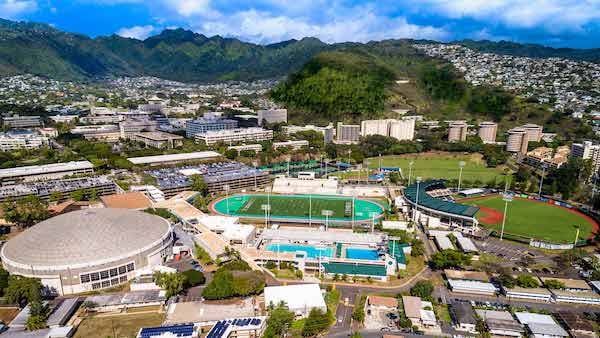Published on
Revitalizing the Economy by Upskilling the Workforce in Hawai’i

The pandemic hit hard on many economies throughout the United States, including Hawai’i, and it’s taken a toll on their workforce. As residents continue to look for good jobs in an unemployment society, it was time for higher education to lend a hand in order to fill the gaps in the industry and get people back into the workforce. In this interview, Daniel Doerger discusses how the University of Hawai’i is addressing these challenges through upskilling, the role of community colleges in all of this, and the impact it has on learners and the broader community.
The EvoLLLution (Evo): What was the inspiration behind developing and launching Good Jobs Hawaii?
Dan Doerger (DD): The main inspiration for Good Jobs Hawaii was the multiple workforce initiatives we already had in motion. It is a continuation of those. Some were pre COVID, but some came as a reaction to the pandemic in the form of money available to jumpstart the economy as a result of COVID.
As we were looking beyond that, we wanted to pinpoint high-growth fields that would be more shockproof for the state’s economy. That’s when we found the opportunity for the Good Jobs Challenge grant money, and we selected four sectors: healthcare, IT, clean energy/skilled trades, creative industries. It was the inspiration to continue the work we were already doing, but we wanted to extend that work.
Evo: How does Good Jobs Hawaii intersect with the college’s mission to serve its community and citizens of the state?
DD: There’s a new strategic vision for the entire university system with four imperatives, one being workforce. So, certainly all the workforce development grants we manage support that part of the plan.
In keeping with the community college mission, those campuses are strongly embedded in their communities across the state. One challenge that comes with that is the fact that our state is made up of islands, so it’s easy for things to become isolated. There are many communities that can’t access UH campuses, so we’re looking for ways to take the programs to them. We want to maximize what the Good Jobs program can do.
Evo: What makes Good Jobs Hawaii unique?
DD: One thing that makes this program unique is the connection to industry leaders themselves. Previously, those in higher education would ask business leaders what skills they wanted people to have. They would tell us, then we would go off and create the program. But now, industry is so much more involved throughout the entire process.
I’ve never seen this much involvement in my 30 years working in education. There’s a stronger commitment in Hawaii to hire people within the state who were trained in the state and who want to stay and raise a family here.
The other unique piece is what we call our navigators who support students. They help them from the very beginning and stay with them through job placement and, if applicable, with even more upskilling after they have found employment. They help guide them based on goals and interests, check in with them during trainings and provide wraparound services as needed. Ultimately, they’re there to support and get students on the career pathway that’s right for them.
Evo: Do you have any insights into the impact this program has on the students or the institution?
DD: Good Jobs Hawaii just launched so we’re not able to gather the data there just yet. But for our other workforce initiatives, we can see the impact and expect that Good Jobs will not be any different in terms of impact. We’ve found that these initiatives have allowed people to make transformations, not only for themselves but for their families and communities.
People are excited about the various certificates available to them and want to take that next step in their careers. It’s a leg up to getting the job they want. When it comes to a resume, having those certifications makes people stand out. Seeing them want to continue, upskill and figure out how to keep moving through their career pathway is amazing.
This interview was edited for length and clarity. To learn more about how the University of Hawai’i is able to deliver accessible programming to its communities, click here.
Author Perspective: Administrator



